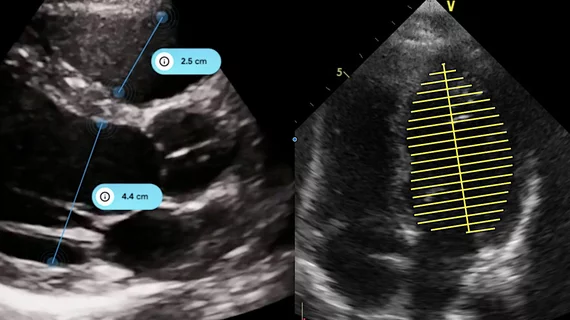FDA approves AI startup’s new software for echo assessments
iCardio.ai, a Los Angeles-based artificial intelligence (AI) startup co-founded by a cardiologist, has received U.S. Food and Drug Administration (FDA) approval for its EchoMeasure software to evaluate echocardiography data. This is the company’s very first FDA approval, though it has already been working closely with several partners in the healthcare space.
“The clearance for this system will act as the foundation on which future algorithms will be supported, namely our structural heart disease detection algorithm suite,” according to a company statement. “Some of our algorithms can be used to detect valvular heart disease and have already garnered much attention from health systems and prosthetic valve manufacturers.”
iCardio.ai was founded by serial entrepreneur Joseph Sokol, cardiologist Aakriti Gupta, MD, MSc, and industry veteran Roman Sandler, PhD.
iCardio.ai continues momentum with key approval
So far 2024 has been an eventful year for iCardio.ai. The company previously announced new partnerships with Viz.ai, SARC MedIQ and Abbott, for example, and then it officially joined the Cedars-Sinai Accelerator program in September, an honor that comes with significant funding and access to hundreds of clinician and executive advisors.
The Abbott partnership, first announced in September, is focused on using iCardio.ai algorithms to evaluate intracardiac echo (ICE) images captured by Abbott catheters.
“We are honored to begin collaborating with Abbott, a well-recognized and global health care company,” Sokol said at the time. “The collaboration will take advantage of iCardio.ai's internal capabilities and in-house talents. This work with Abbott is aligned with our mission of bringing AI to ultrasound.”
Click here for an extended look at cardiology's current role as a leader in AI and other emerging technologies.

